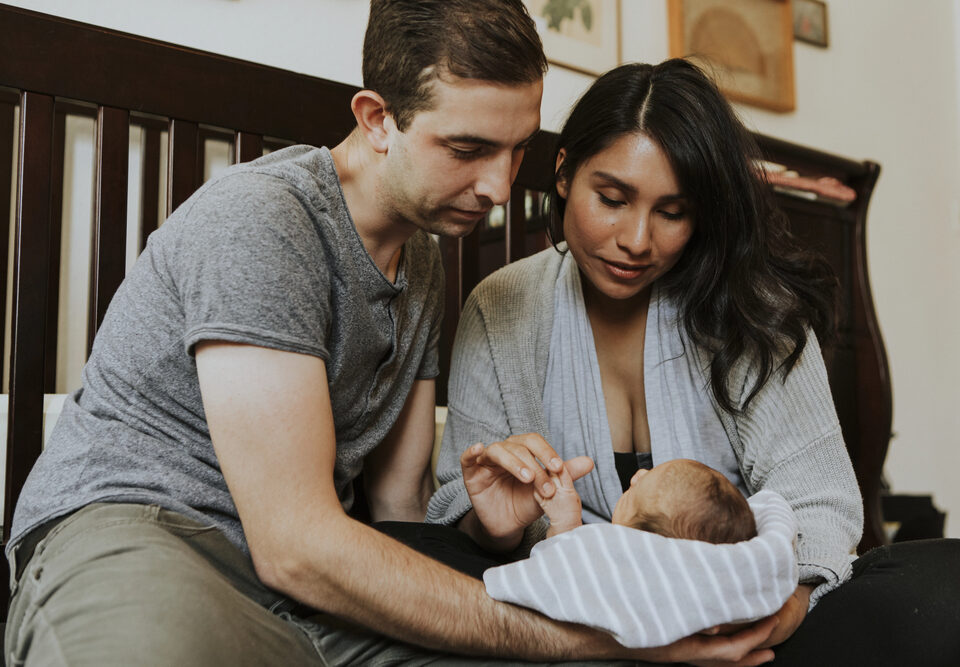The battle for frozen embryos
December 5, 2014Company egg-freezing branches off to another level
January 6, 2015Back in July, the European Court of Human Rights (ECHR) ordered all EU countries to recognize children born to surrogate mothers living abroad.
This was a huge leap for EU countries and its citizens. While surrogacy is still deemed illegal on French soil, as well as other EU countries, the ECHR ruled that children should be recognized, because not doing so undermines their identity.
The ECHR ruled, “France has the right to ban surrogate parenthood but not to refuse granting legal citizenship to children born to surrogate mothers.”
The two French couples tangled in the battle were the Mennesson and Labassee families. Both had children born in the United States. The Mennesson’s had twins in California and the Labessee family had a child born in Minnesota.
Five months later, after the ECHR’s ruling, France is getting reprimanded once again.
According to Annalisa Lista, a writer for West, she reports, “As for surrogacy, the French Council of State has confirmed what was already established by the ECHR,” she begins in her story. They have been, “rejecting the complaints of some associations against the Ministerial Circularsent by the Minister of Justice Christiane Taubira that grants the French citizenship to those babies born abroad through surrogate pregnancy.”
Lista points out the Council have once again reiterated the following, underscoring what the ECHR ruled:
- A person is of French nationality if at least one of his/her parents is French
- Being born abroad through surrogacy does not exclude the possibility of obtaining the French citizenship, even though it is illegal in France.
If a child meets the above requirements they are to be granted French citizenship. In ECHR’s Article 8 ruling, they specifically stated that doing so was the child’s, “right to the respect of their private life.”
France must recognize children born via surrogacy, and continuing to fight it is a losing battle as the ECHR has already made its ruling. What type of repercussions, if any, will France receive if they continue to disregard this fundamental right due to these children?
In the Leiden Law Blog, they clearly spell out their theory when France refused to register the Mennesson and the Labassee children in the French civil register.
Claire Achmad writes, “The Court decided although France had not violated the commissioning parents and children’s right to respect for family life, a violation of the child’s right to respect for private life (Article 8, European Convention for the Protection of Human Rights and Fundamental Freedoms) had occurred.” She goes on to say, “Although France and other parties to the Convention have a wide margin of appreciation (MOA) in relation to matters such as surrogacy, in these situations France had overstepped its MOA by refusing to recognize under French law children who had French biological fathers.”
In both cases, the fathers’ sperm were used in the embryo creation.
In this legal article they highlight the rights of children.
In deciding that the violation of Article 8 occurred only in relation to the children, Achmad reports, the Court emphasized the importance of the child’s rights involved.
“Its decision is primarily based on a view that the refusal to register the children meant the children’s right to preserve their identity was not properly protected.”
The reporter wants readers to know that under Article 8, France is mandated to protect the children in the UN Convention on the Rights of the Child, also referred to as CRC. The identity of a child is the crucial component under the European Convention in terms of right to respect for family life.
“In refusing to recognize under French law the biological link between the children and their fathers and preventing the acquisition of French nationality, the children were left in a position that was not in their best interests, as required under Article 3 of the CRC,” writes Achmad.
In her hypothesis, Achmad believes that the Mennesson and Labassee Court’s judgment will pave the way in other states restricting surrogacy which are part of the Council of Europe. Although they do not allow surrogacy, the ECHR ruling will more than likely nudge them in doing the right thing in regard to international surrogacy birth registration.
“This means the Court’s judgments will impact on many more children than just the three concerned in the Mennesson and Labassee cases. In its first decisions relating to international surrogacy, the European Court of Human Rights has been bold in finding violations of the rights of the child,” she reports.
France has been told that the rights of these children born through international surrogacy must be adhered to. We hope they acquiesce and do what they are morally and legally bound to do.



